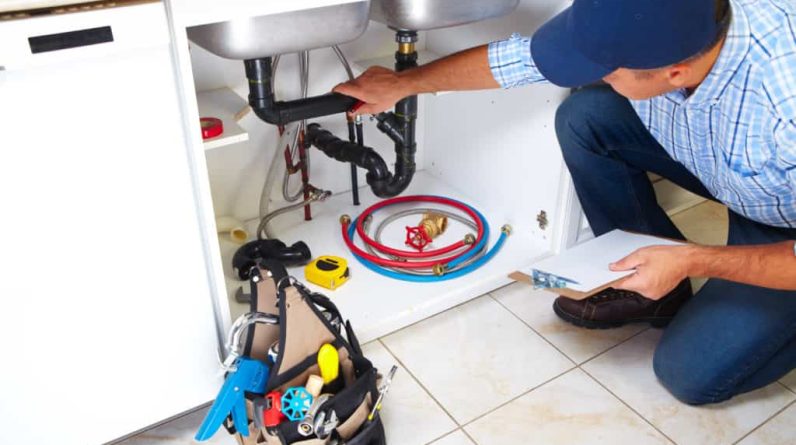
If you’re tired of dealing with those unwelcome visitors in your home or garden, then you’ve come to the right place. Colorado, known for its stunning landscapes and diverse wildlife, also has its fair share of pesky pests that can wreak havoc on your property. From ants and spiders to rodents and termites, these nuisances can quickly turn into a major headache if not properly managed. In this comprehensive guide, we will explore effective pest control strategies tailored specifically to Colorado’s unique environment. Whether you’re a homeowner, a gardener, or simply someone seeking to keep pests at bay, this blog post will equip you with the knowledge and tools you need to reclaim your space and say goodbye to those pesky pests once and for all.
Why Do Pests Invade Your Property?
Pests invade properties for various reasons, driven by their survival instincts and the availability of favorable conditions. Understanding why pests invade your property can help you develop effective pest control strategies. Here are some common reasons why pests may target your property.
- Food Sources: Pests are constantly on the lookout for food sources to sustain themselves and their colonies. Your property may provide an abundant supply of food, including crumbs, unsealed containers, improperly stored pet food, or even organic matter in your garden. Pests like ants, cockroaches, and rodents are particularly attracted to accessible food sources.
- Water and Moisture: Pests, especially insects, require water to survive. Leaking pipes, standing water, or excess moisture in basements or crawl spaces can attract pests like mosquitoes, termites, and silverfish. These pests seek out damp environments to fulfill their water needs, making your property an ideal target.
- Shelter and Protection: Pests are always searching for safe shelter and protection from harsh environmental conditions. Your home or business can provide them with the ideal refuge they need to thrive. Pests like rodents, spiders, and insects often seek out cracks, crevices, attics, basements, and cluttered areas where they can hide and breed undisturbed.
- Breeding Grounds: Pests are driven by their reproductive instincts, and your property can offer suitable conditions for them to breed and multiply rapidly. For example, stagnant water sources such as clogged gutters or neglected birdbaths can attract mosquitoes, while untrimmed vegetation or overgrown lawns can provide breeding grounds for various insects.
- Entry Points: Pests can infiltrate your property through small openings and entry points. These can include gaps in doors and windows, cracks in the foundation, damaged screens, or unsealed utility penetrations. Pests are adept at finding and exploiting vulnerabilities in your property’s structure to gain access.
- External Factors: External factors such as seasonal changes, weather conditions, and nearby environments can influence pest activity. For instance, during colder months, pests may seek warmth and shelter indoors. Similarly, if your property is close to wooded areas, fields, or bodies of water, you may be more susceptible to certain pests like rodents or mosquitoes.
- Transport: Pests can hitch a ride and enter your property through various means of transport. This can include items brought in from infested areas, such as furniture, clothing, or even luggage. Additionally, pests can be introduced through gaps in doors or windows while people or pets enter and exit the property.
By understanding the reasons why pests invade your property, you can take proactive measures to eliminate attractants, seal entry points, and implement effective pest control strategies. Regular maintenance, cleanliness, and professional pest control services can help you minimize the risk of infestations and create a less hospitable environment for pests.
Tips For Effective Pest Control In Colorado
Here are some valuable tips and strategies for successful pest control in Colorado, helping you safeguard your property and maintain a pest-free environment.
1. Identify Common Pests
The first step in effective pest control is to familiarize yourself with the common pests found in Colorado. This includes rodents such as mice and rats, insects like ants, termites, and spiders, as well as wildlife such as squirrels and raccoons. By understanding the specific pests you’re dealing with, you can employ targeted control measures.
2. Seal Entry Points
Prevention is key when it comes to pest control. Colorado’s diverse terrain and changing weather conditions can provide ample opportunities for pests to enter your property. Inspect your home for cracks, gaps, and openings that could serve as entry points for pests. Seal these areas using caulk, weatherstripping, or other appropriate materials to deny pests access to your premises.
3. Maintain Cleanliness
Pests are attracted to food sources and unclean environments. Keep your home and surrounding areas clean by regularly disposing of trash in secure containers, sweeping up food crumbs, and promptly cleaning spills. Store food in airtight containers, and don’t leave pet food out overnight. Maintaining cleanliness will eliminate attractants and reduce the risk of pest infestations.
4. Manage Outdoor Vegetation
Colorado’s natural beauty extends to its flora, but overgrown vegetation can harbor pests and provide them with easy access to your property. Trim trees and shrubs away from the house, clear debris, and keep the lawn well-maintained. Regularly inspect plants for signs of pests, such as aphids or spider mites, and take appropriate measures to control them.
5. Use Natural Pest Deterrents
Colorado residents often prefer eco-friendly approaches to pest control. Consider using natural deterrents like diatomaceous earth, which is effective against crawling insects, or essential oils such as peppermint, lavender, or eucalyptus, which can repel certain pests. Planting pest-resistant herbs like basil, mint, or rosemary in your garden can also help keep pests at bay.
6. Seek Professional Assistance
In some cases, pest infestations may be beyond your control or require specialized knowledge for effective eradication. When faced with a severe or persistent pest problem, it is advisable to seek the assistance of professional pest control services. These experts have the experience, tools, and treatments necessary to handle challenging infestations and provide long-term solutions.
7. Regular Inspections and Maintenance
Stay vigilant by conducting regular inspections of your property, both indoors and outdoors. Look for signs of pest activity such as droppings, chewed wires, gnaw marks, or nests. Additionally, maintain routine maintenance tasks such as repairing leaking pipes, sealing gaps, and checking for moisture issues, as pests are often attracted to water sources.
Why You Should Hire The Best Colorado Pest Control Company
When dealing with pest infestations in Colorado, it is highly advisable to hire the best pest control company available. Here are compelling reasons why investing in professional pest control services is a wise decision:
- Expertise and Knowledge: The best Colorado pest control companies have highly trained and experienced technicians who possess extensive knowledge of local pests, their behaviors, and effective control methods. They stay updated on the latest advancements in pest control techniques, ensuring that they can accurately identify and address specific pest issues in your area.
- Customized Solutions: Every pest infestation is unique, requiring a tailored approach for effective eradication. Professional pest control companies will conduct thorough inspections of your property to assess the extent of the infestation and identify the underlying causes. Based on their findings, they will develop a customized treatment plan that targets the specific pests and addresses the root of the problem.
- Integrated Pest Management (IPM): The best pest control companies in Colorado follow Integrated Pest Management practices. IPM focuses on utilizing a combination of strategies, including prevention, monitoring, and targeted treatments, to control pests while minimizing risks to human health and the environment. This approach emphasizes long-term solutions rather than solely relying on pesticides.
- Safety and Health Considerations: Pest control often involves the use of chemical treatments, which can pose risks if not handled properly. Reputable pest control companies prioritize the safety of their clients, their property, and the environment. They employ professional techniques and use EPA-approved products in a responsible and controlled manner, minimizing any potential hazards to humans, pets, and beneficial wildlife.
- Cost-Effective Solution: While it may seem more cost-effective to tackle pest problems yourself, the reality is that a DIY approach often falls short. Ineffective pest control methods can lead to recurring infestations, extensive property damage, and increased expenses in the long run. By hiring a professional pest control company, you ensure that the infestation is properly addressed, reducing the risk of future problems and potential costs associated with repairs and replacements.
Conclusion
By understanding the unique challenges presented by Colorado’s environment and diverse pest population, you can implement targeted strategies for prevention, identification, and eradication. Whether you’re a homeowner, a gardener, or a business owner, this guide empowers you to take control of your property and create a pest-free environment. Remember, persistence, proactive measures, and, if needed, the assistance of professional pest control services are key to achieving long-term success. With the information provided in this guide, you can confidently bid farewell to pests and enjoy a peaceful and pest-free life in the beautiful state of Colorado.






